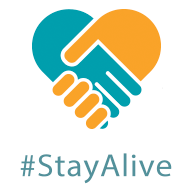
Many of us feel anxious from time to time, and school can have a significant impact on our mental wellbeing. For some young people, starting or returning to school, college, or university can be an exciting time, whereas for others it may feel scary or overwhelming.
Read on to learn about how school anxiety can affect your wellbeing, get tips and advice for easing anxious feelings, and find where to get support!
What is Anxiety?
Anxious feelings are completely normal and can actually be helpful at times! You may have heard of the ‘fight, flight, or freeze’ response; this refers to how our mind and body responds to certain situations, and our response is a way of protecting ourselves from harm.
Once this response is triggered, your mind and body change to make you feel on ‘high alert’, or in other words, anxious! Sometimes, anxious feelings and sensations can be useful, like helping us run away quickly from danger. However, sometimes anxious feelings can manifest in everyday situations, and this can become unhelpful for us. Some situations that may cause us to feel anxious are sitting exams, starting a new school, being bullied, and being in education during the COVID-19 pandemic.
Anxious feelings are individual can be experienced in lots of different ways. Here are some of the ways that anxious feelings can affect us:
 To find out more about anxiety, tips for managing anxious feelings, and where to find further support, read our Anxiety module here!
To find out more about anxiety, tips for managing anxious feelings, and where to find further support, read our Anxiety module here!
How can school affect anxiety?
Managing school anxiety feels very difficult for someone affected by it. We are all different and nobody should feel judged for feeling this way. School anxiety is the term we use when worrying about elements of education feels overwhelming and stops someone from enjoying or making the most of their time there.
We all experience things in different ways, and some examples of how anxiety can manifest at school are:
- Finding it hard to concentrate (in class, homework, or exams)
- Struggling to engage with others
- Being absent from school or feeling unable to go to class
- Experiencing physical sensations, such as a racing heart, hyperventilating (fast breathing), tense muscles, sweaty palms, an unsettled stomach, trembling or panic attacks
- Avoiding certain situations or people
- Feeling self-conscious or worried about what others think of you
- Having an existing difficulty with anxiety, which feels more intense due to school

The COVID-19 pandemic has been a challenging time for so many of us, and young people in particular have been faced with a lot of change and disruption to school life. Lots of us have experienced watching the news more often than usual, which has then resulted in us feeling overwhelmed by the coverage. We have also had to adapt how we interact with others, including with school friends and teachers. If you are worried about COVID-19 and the impact on your wellbeing, check out our page here for some further support.
How can I ease my School Anxiety?
There are lots of ways you can help to ease anxious feelings you may be experiencing. It can be helpful to learn more about Anxiety, and to hear from other young people about their own experiences. Here’s a video from Young Minds with young people talking about how they are affected by anxiety or anxious feelings, and why it’s important that someone experiencing this feels supported and understood.

By learning more about anxious feelings, we can all build our awareness of youth mental health and how to improve our wellbeing. Here are some ways that young people affected by school anxiety can help to manage those feelings:

- Speak to someone you trust (parent, teacher, counsellor etc)
- Seek professional help if you are ever worried about how you feel
- Speak to your friends about how they’re feeling
- Use coping strategies to ease anxious feelings (deep breathing, journalling, grounding, building resilience)
Anxious feelings are common and it’s OK to feel this way. If this sounds like you (or someone you know) there’s lots of help available to you. You can try talking to your GP, a counsellor, or a teacher that you feel comfortable with, then they will be able to help you find further support. You can also find help in your local area here.
If you are a professional working with young people, you can visit our Schools Page where you can find a wide range of free resources, information, and tips for easing School Anxiety.
Remember, you are not alone. If you’re ever in doubt, reach out and talk to someone you trust about how you feel.


